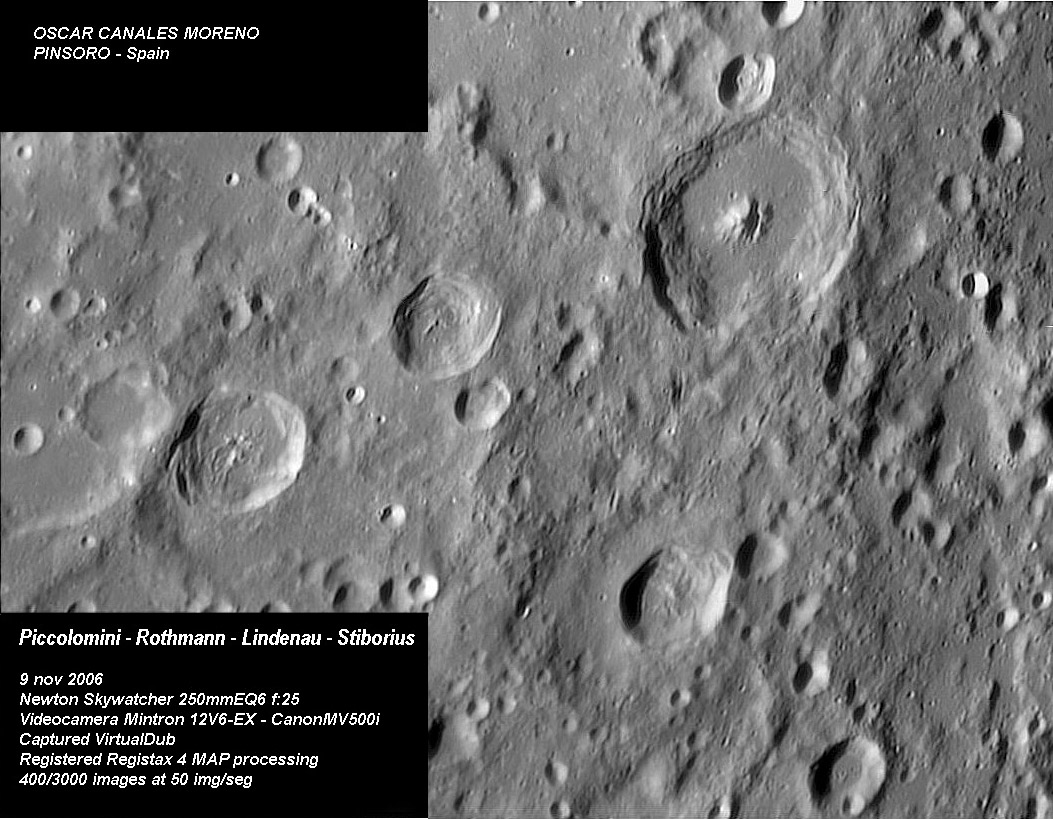image byOscar Canales Moreno, Pinsoro, Spain
Only one crater here is well enough known to be recognizable - Piccolomini, the Tycho-like crater striding the southeast end of the Altai Scarp. Piccolomini is a relatively fresh crater but lacks rays and secondary craters so is old enough to have had its smallest features erased by meteoritic bombardment. The three largest relatively fresh craters south and west of Piccolomini - Stibborius, Rothmann and Lindenau - are all 40-50 km diameter look-alikes with small central peaks and slumped walls. The rest of this scene is relatively non-descript older craters on top of each other. Some are probably secondaries from the formation of the Nectaris Basin and others are just random older impacts. A line of smaller secondaries south of Piccolomini appear to come from Stibborius, making it perhaps the youngest large crater in this area. In fact, this southeast quardrant of the Moon has few large to medium size young craters - rays are rare, except for the headlights near Stevinus.
Technical Details:
Nov 9, 2006. Skywatcher Newtonian 250mm + Mintron 12v6-EX; VirtualDub for deinterlace and video capture + Registax 4 + Photoshop.
Related Links:
Rükl plates 67 & 58
Lunar Orbiter IV view
Yesterday's LPOD: Where's Clavius?
Tomorrow's LPOD: A Basin to Study
COMMENTS?
Register, Log in, and join in the comments.




